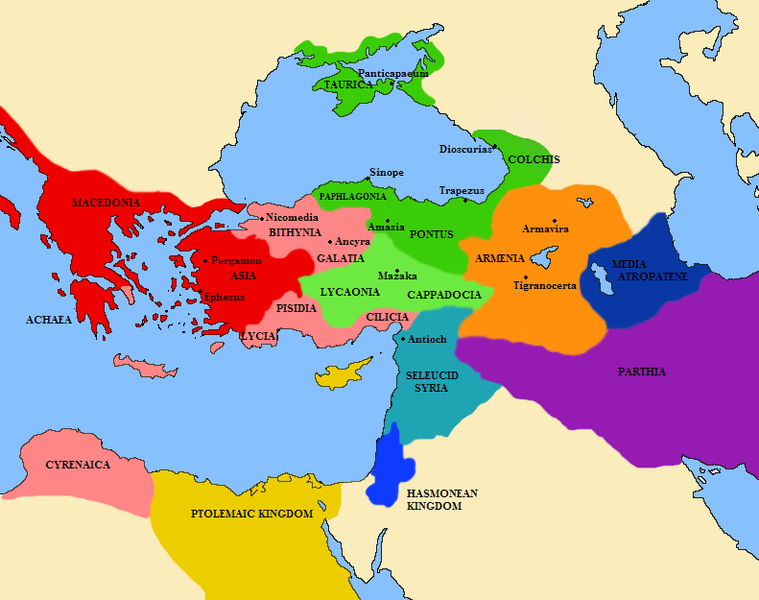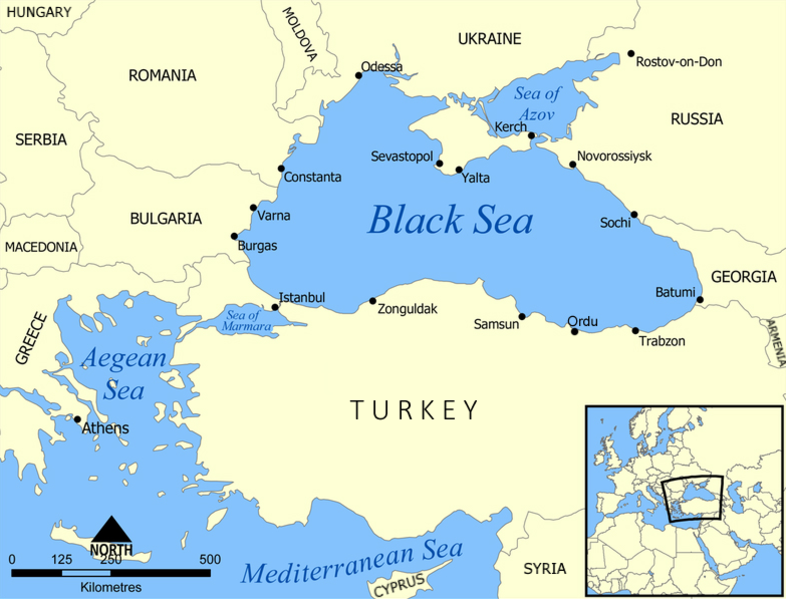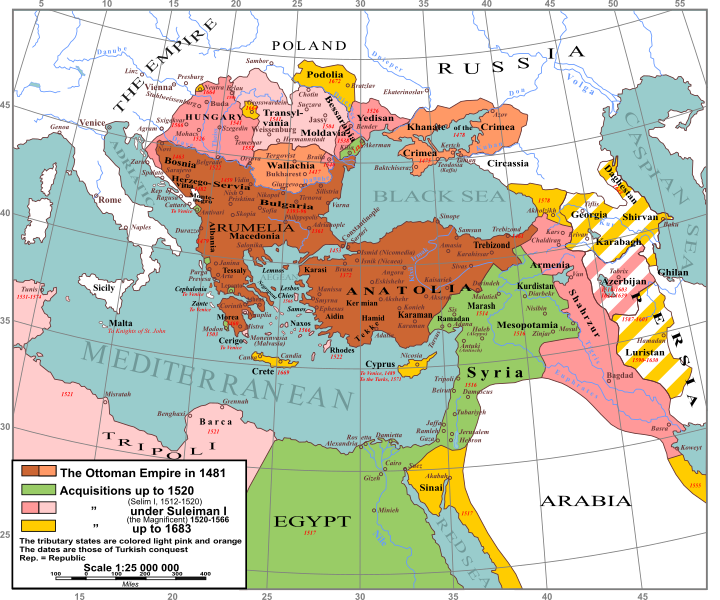 |
| Mark Tansy's "Myth of Depth." Image from Adbusters, specifically Tactical Briefing #19. |
Took a small break from writing up Cicero's "For the Manilian Law" to go live life. So I ran off to go live life for a week or two; now I'm helping my husband study for an upcoming military exam, so I have time on my hands between reviewing the field manual numbers for the Browning machine gun and the max effective area of the M4.
(Life, if you're curious, was fun. Spent a lot of time fishing - well, mostly not catching fish, until some helpful people on Facebook explained how to fish for trout using salmon eggs. Also went hiking and shooting. Lovely time!
 |
| Lots of time enjoying the great outdoors in AK. |
 |
| Also working out like crazy. This I caught with my webcam before leaving for a run. |
For the Manilian Law: Context
Rome was at war with Mithridates, king of Pontus. Pontus was a kingdom on the Black Sea. Most of Pontus is in modern-day Turkey, with parts in Georgia, Ukraine and Russia.
 |
| Kingdom of Pontus, in darker green. Wikipedia. |
 |
| Modern Black Sea region for comparison. Wikipedia. |
The speech provides better context than the introduction. One of the problems with this region was that Rome would temporarily take a territory, people would invest a pile of money, and then war would break out. Because the rich and powerful were invested in the resources of Pontus, Rome was obligated to go to war to protect those interests. Because Pontus was constantly at war, it was difficult to collect taxes and other investments from the region. Thus, the war in Pontus against Mithridates became a giant sinkhole for the wealth of Rome.
Thus, Rome needed a victory and an end to fighting. Under the Roman Republic, generals usually did not have a great deal of power individually. There were often several generals in charge of any given war. To cut costs and assure victory, Cicero and many others supported putting one man in charge of the war. In the case of Cicero, that man was Pompey.
Thus, For the Manilian Law is basically one long love-poem about Pompey. It's mostly about how awesome he is and what a great ruler he would be.
For the Manilian Law
Two things struck me about this essay. First, it's very interesting - and strange - to hear the "other side" of the story on some of these classic tales.
For example, I don't know if anyone else has seen the series Spartacus: Blood and Sand, but Spartacus is definitely the hero. In For the Manilian Law, Spartacus is not only the bad guy. In fact [spoiler alert], one of the big things on Pompey's resume is that he beat Spartacus and put down the revolt. Apparently the war with Spartacus really did scare Rome pretty badly; thus, Pompey was a hero for successfully killing Spartacus.
I'm also a big fan of the Bible, and Cicero has a very different view of tax collectors than is presented in the Bible. However, he does inadvertently bring up the very reasons why someone living as a Hebrew in Judea might really, really hate Roman tax collectors:
"For the tax collectors - an extremely honorable and distinguished group - have transferred their business interests and capital to Asia; their business and fortunes ought by their nature be your concern. If we have always thought that taxes form the backbone of the state, we shall certainly be right to say the class that collects them supports all other classes."
- Cicero, Verse 17, "For the Manilian Law"
The second thing that struck me is how many arguments from the speech parallel arguments from our own political time. A great example:
"On the very day you appointed him commander of your war with the pirates, the mere mention of his name and reputation caused a sudden plunge in the price of corn (although it had been very scarce), to a level it would be hard to reach during a period of long peace and after a period of great agricultural production."
- Cicero, Verse 17, "For the Manilian Law"
So apparently the whole: "That dude I want you to vote for? TOOOOOTALLY made that thing you like (grain, gas, etc.) a lot cheaper!" is really, really old. 66 BC old at the very least!
(The corn was definitely not maize, or what we think of as corn, but likely barley or another staple grain of the Romans.)
It's funny and a little sad that we keep falling for the same tricks for thousands of years. "For the Manilian Law" is pretty much identical to political speeches nowadays - why the leader should get more powers than he had before, why he's awesome and loyal, etc.
But it does give me pause for thought: they handed extraordinary power over to one man to win a war only 39 years before the fall of the Republic and the rise of dictatorship...

Always interesting to hear the OTHER side of the story, in this case, about Spartacus. (No, I'm Spartacus...)
ReplyDeleteI'm Brian! :-D
ReplyDelete:-) See? And now I want to learn more of the history of the time about Spartacus.
What if Spartacus is like "Anonymous"? The kids who "took down" - did a DoS attack - claimed to be "Anonymous." Maybe there was no Spartacus; maybe Spartacus was just "Anonymous."